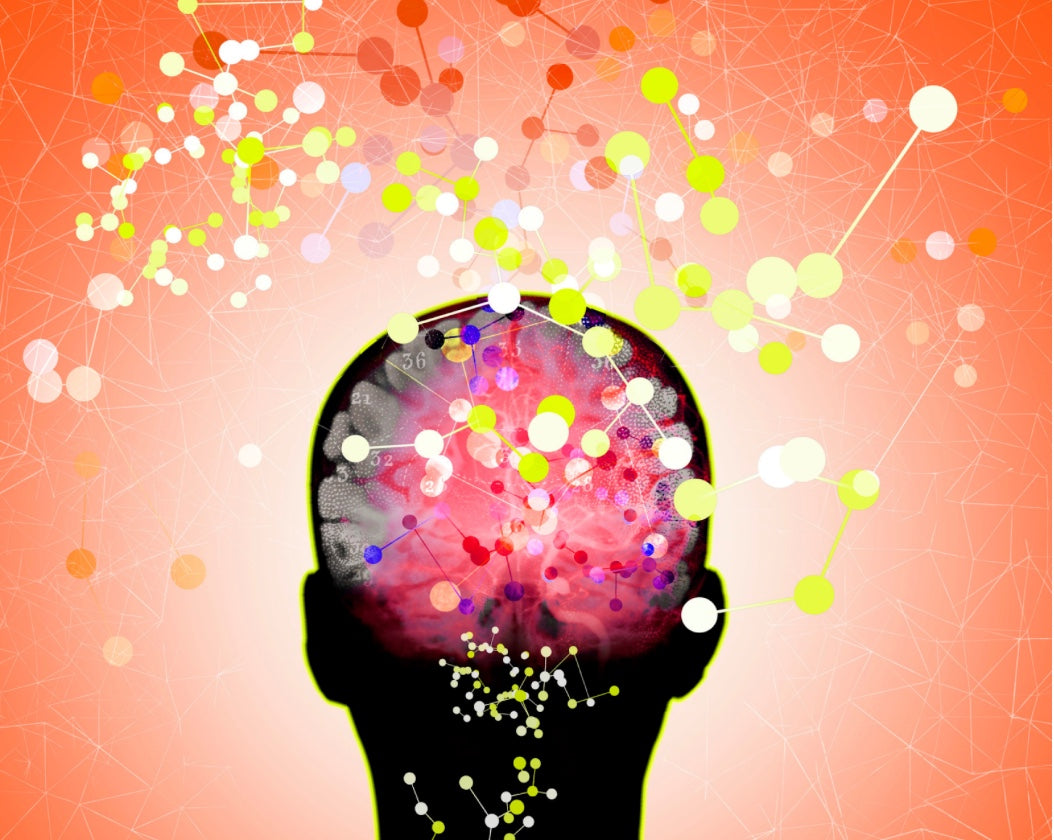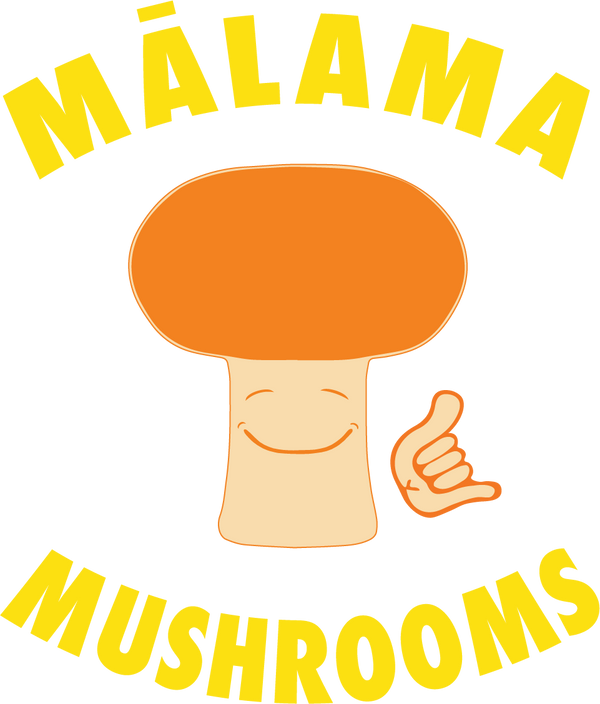
What Are Mushroom Nootropics? + 5 Natural Nootropics To Enhance Your Mind!
Share
What Are Mushroom Nootropics? Plus 5 Natural Nootropics To Enhance Your Mind
Do you ever have mental fatigue that makes you feel spacey or confused? Do you ever feel like you would be so much more productive if you could just clear away that mental fog? Did you already lose your keys for the second time today?(They’re definitely under the mail on your table) Then it sounds like you might benefit from nootropics!
'Just what are nootropics?' you may be asking yourself. Great question! Pronounced No-oh-tro-pics, they’re sometimes referred to “smart drugs” or “cognitive enhancers”. Whatever you decide to call them, they’re substances that improve your mental performance.
Nootropic is the latest buzzword to take over the health and wellness space, and for good reason. Nootropics can boost your memory, creativity, and intelligence. Not to mention they can give you the motivation and focus you need to crush your next deadline.
Although, not all nootropics are created equal and there are so many varieties of nootropics, it can be difficult to decide which one is best for you. So we put together a comprehensive list of our 5 favorite nootropics to make it easier for you to enhance your mind and think more clearly.
Lions Mane Mushroom (Extract), Nootropics
This white, shaggy, mushroom resembles the mane of a lion. It has a seafood-like taste and is often used in place of lobster or crab in plant-based dishes. Though this mushroom’s nootropic benefits go far beyond the culinary world. Lion’s Mane Powder is possibly the most powerful mushroom for keeping your mind quick and sharp.
Lion’s Mane has over 70 bioactive compounds that can improve nerve function in your brain. (1) Two of these compounds are unique because they can’t be found in any other substance and they can stimulate the growth of brain cells. They’re called hericenones and erinacines. (2)
Studies show that Lion’s Mane may prevent neural damage caused by amyloid-beta plaques, which collect in the brain during Alzheimer’s disease. (3,4,5,6) Consuming Lion’s Mane daily has shown to improve mental functioning in senior adults with mild cognitive impairment. These improvements subsided when supplementation stopped. (7)
But Lion’s Mane’s nootropic benefits don’t end there. It also contains another bioactive compound called amycenone, which has been shown to diminish symptoms of insomnia, anxiety, depression, and schizophrenia. (8)
Mālama Mushrooms makes it simple to reap the powerful nootropic benefits of Lion’s Mane. Simply add half a teaspoon of Malama’s Lion’s Mane Extract Powder to your coffee, tea, or smoothie and enjoy!
Cordyceps Mushroom
Cordycep mushrooms were originally discovered in the Himalayan mountain. Legend has it that those living at the high altitude began experimenting with them and found it helped give them a natural boost in energy and increase oxygen flow which assisted living at high-altitude.
Fast forward to today and they have actually been studied to have some potent nootropic benefits. They’re most renowned by fitness buffs and athletes for their ability to boost endurance, but research suggests that they can help your brain get swol’ too.
Cordyceps are well known for their ability to help the body utilize oxygen, specifically during exercise. (9) But this may lead to increased cognitive performance as well. In one mouse study, cordyceps lead to a significant improvement in learning and memory when taken for 45 consecutive days. (10)
Other animal studies show that cordyceps may be able to treat Alzheimer’s and Dementia. One revealed that it can help reduce neural cell death in the brain’s hippocampal region, where dementia is found. The same study showed that it may be able to improve spatial memory to the same extent as a common Alzheimer’s drug. (11)
To boost your physical endurance as well as your mental endurance, try Malama’s Cordyceps Mushroom Extract Powder. It’s made with 100% fruiting body cordyceps, never myceliated grain filler.
Kona Coffee With Lions Mane and Cordyceps Mushroom Extract

You’ve probably experienced the energizing effects of caffeine before. After all, it’s the most widely consumed nootropic in the world. It’s naturally found in coffee, tea, guarana, even chocolate. But it’s also often added to sodas, energy drinks, and supplements.
It’s no surprise that caffeine can enhance your alertness, short-term memory, and reaction time. This is because caffeine blocks adenosine receptors in your brain. Adenosine is responsible for making you feel sleepy by depressing your central nervous system. (12,13)
When consumed in moderation, caffeine provides a variety of nootropic benefits. Drinking caffeinated coffee or tea has shown to lower your risk of depression and suicide. (20, 21) It may also reduce your risk of Alzheimer’s and Parkinson’s. (14,15,16,17)
Try Malama Mushroom’s 100% Kona Coffee With Lion’s Mane and Cordyceps Mushroom Extract to give your brain an extra nootropic boost. By combining nootropic mushrooms with caffeine, you can optimize your mind for more focus and alertness from your daily cup o’ joe.
Chaga Mushroom Powder
Chaga is a funky-looking mushroom that grows on birch trees in colder climates. It’s well known for its ability to strengthen your immune system, but research suggests that it can strengthen your mind as well.
The next time you need to prep for finals, try supplementing with Chaga. Studies show that Chaga may be able to protect your brain from oxidative stress. So you can remain calm and focused on your next exam. (18)
Chaga may also help you retain more information as well. It has been used to improve memory and learning in mice with brain damage. (19,20) Another study found that it can reduce the amount of damage of neurotoxin that causes Parkinson’s. (21)
It’s easy to gain the calming nootropic benefits of Chaga. Just add one teaspoon Malama Mushrooms Chaga Mushroom Extract Powder to your favorite warm beverage or recipe. You’re body and mind will thank you.
Chocolate Mushroom Powder, with Cacao
We just love giving you more reasons to eat chocolate. The cacao that’s used to make chocolate is rich in antioxidants and flavonols that benefit your body. And recent research suggests it might benefit the health of your brain too.
The flavonols in cacao help improve blood flow to your brain. This allows more nutrients and oxygen to travel to your brain cells. (22) Flavonols have also shown to improve reaction time and verbal fluency in adults with mental impairment. Researchers think that this might make cocoa beneficial for treating and preventing neurodegenerative diseases in elderly people. (23,24)
If you think that eating chocolate puts you in a better mood, it’s not just your imagination. Chocolate is a source of tryptophan, an essential amino acid that can’t be produced by your body. Tryptophan is also a precursor to serotonin, a neurotransmitter that regulates anxiety and makes you feel happy. (24)
Who knew that eating chocolate could make you smarter? If you want a delicious way to get the nootropic benefits of cacao plus lion’s mane, cordyceps, and Chaga, try Malalma Mushroom’s Mushroom Chocolate. Not only does it contain three nootropic mushrooms, but five other medicinal mushrooms too. Plus it’s made with 100% fruiting body extracts, never myceliated grain filler.
Give Your Mind a Boost With Natural Smart Drugs, Mushroom Powder, Malama Hawaii
Whether you’re studying for an exam, prepping for a big meeting, or just tired of misplacing your keys, we all could use more mental clarity. Fortunately, with the power of natural nootropics, it’s never been easier to improve your intelligence.
You first began reading this article with the question, “what are nootropics”? Now that you’re at the end, you might have a new question – “which natural nootropic should I try first”?
You can’t go wrong with any of the nootropics we mentioned today. And Malama Mushrooms makes it super easy to try any of the brain-boosting nootropics listed above. Order one of these smart drugs today and tag us on Instagram @malamamushrooms to brag about your newly enhanced mind. Mahalo!
Sources:
- https://pubmed.ncbi.nlm.nih.gov/26244378/
- https://pubmed.ncbi.nlm.nih.gov/24266378/
- https://pubmed.ncbi.nlm.nih.gov/21383512/
- https://pubmed.ncbi.nlm.nih.gov/27350344/
- https://www.ncbi.nlm.nih.gov/pmc/articles/PMC5133811/
- https://www.ncbi.nlm.nih.gov/pmc/articles/PMC4895996/
- https://pubmed.ncbi.nlm.nih.gov/18844328/
- https://www.longdom.org/open-access/recovery-from-schizophrenia-with-bioactive-substances-in-hericium-erinaceum-2469-9837-S1-003.pdf
- https://www.jstage.jst.go.jp/article/jspfsm/55/Supplement/55_S145/_pdf/-char/en
- https://www.ncbi.nlm.nih.gov/pmc/articles/PMC5874985/
- https://www.sciencedirect.com/science/article/pii/S1319562X1830192X
- https://pubmed.ncbi.nlm.nih.gov/20164566/
- https://onlinelibrary.wiley.com/doi/full/10.1111/j.1750-3841.2010.01561.x
- https://onlinelibrary.wiley.com/doi/full/10.1002/mnfr.201500620
- https://www.tandfonline.com/doi/abs/10.3109/15622975.2013.795243
- https://link.springer.com/article/10.1007/s12603-014-0021-7
- https://www.ncbi.nlm.nih.gov/pmc/articles/PMC4440674/
- https://pubmed.ncbi.nlm.nih.gov/15630179/
- https://pubmed.ncbi.nlm.nih.gov/23879665/
- https://movementdisorders.onlinelibrary.wiley.com/doi/abs/10.1002/mds.21706
- https://pubmed.ncbi.nlm.nih.gov/23959789/
- https://pubmed.ncbi.nlm.nih.gov/16794461/
- https://pubmed.ncbi.nlm.nih.gov/22892813/
- https://www.ncbi.nlm.nih.gov/pmc/articles/PMC3575938/




